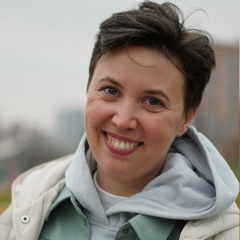Да, они знали кое–какие заклинания, умели превращать воду в вино, и каждый из них не затруднился
бы накормить пятью хлебами тысячу человек. Но магами они были не поэтому. Это была шелуха, внешнее. Они были магами потому, что очень много знали, так много, что количество перешло у них наконец в качество, и они стали с миром в другие отношения, нежели обычные люди. Они работали в институте, который занимался прежде всего проблемами человеческого счастья и смысла человеческой жизни, но даже среди них никто точно не знал, что такое счастье и в чем именно смысл жизни. И они
приняли рабочую гипотезу, что счастье в непрерывном познании неизвестного и смысл жизни в том же. Каждый человек — маг в душе, но он становится магом только тогда, когда начинает меньше думать о себе и больше о других, когда работать ему становится интереснее, чем
развлекаться в старинном смысле этого слова.
бы накормить пятью хлебами тысячу человек. Но магами они были не поэтому. Это была шелуха, внешнее. Они были магами потому, что очень много знали, так много, что количество перешло у них наконец в качество, и они стали с миром в другие отношения, нежели обычные люди. Они работали в институте, который занимался прежде всего проблемами человеческого счастья и смысла человеческой жизни, но даже среди них никто точно не знал, что такое счастье и в чем именно смысл жизни. И они
приняли рабочую гипотезу, что счастье в непрерывном познании неизвестного и смысл жизни в том же. Каждый человек — маг в душе, но он становится магом только тогда, когда начинает меньше думать о себе и больше о других, когда работать ему становится интереснее, чем
развлекаться в старинном смысле этого слова.
Yes, they knew some spells, knew how to turn water into wine, and each of them was not at a loss
to feed five thousand loaves to a thousand people. But they were not magicians, therefore. It was a husk, external. They were magicians because they knew a lot, so much that their quantity finally passed into quality, and they began to have a different relationship with the world than ordinary people. They worked at an institute that dealt primarily with the problems of human happiness and the meaning of human life, but even among them no one knew exactly what happiness was and what exactly was the meaning of life. And they
accepted the working hypothesis that happiness is in the continuous knowledge of the unknown and the meaning of life in the same. Each person is a magician in his soul, but he becomes a magician only when he begins to think less about himself and more about others, when he becomes more interested in working than
have fun in the old sense of the word.
to feed five thousand loaves to a thousand people. But they were not magicians, therefore. It was a husk, external. They were magicians because they knew a lot, so much that their quantity finally passed into quality, and they began to have a different relationship with the world than ordinary people. They worked at an institute that dealt primarily with the problems of human happiness and the meaning of human life, but even among them no one knew exactly what happiness was and what exactly was the meaning of life. And they
accepted the working hypothesis that happiness is in the continuous knowledge of the unknown and the meaning of life in the same. Each person is a magician in his soul, but he becomes a magician only when he begins to think less about himself and more about others, when he becomes more interested in working than
have fun in the old sense of the word.
У записи 2 лайков,
0 репостов.
0 репостов.
Эту запись оставил(а) на своей стене Дима Будников






















